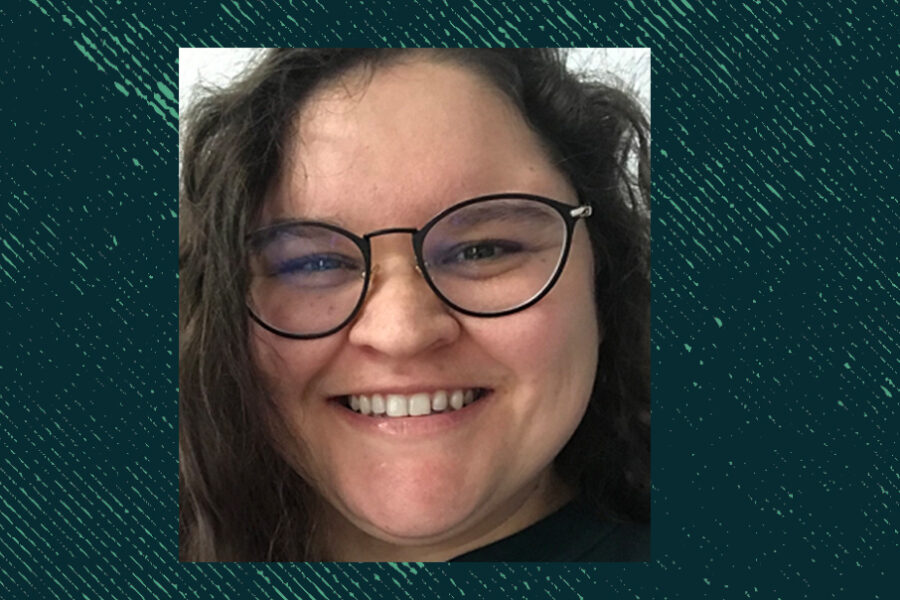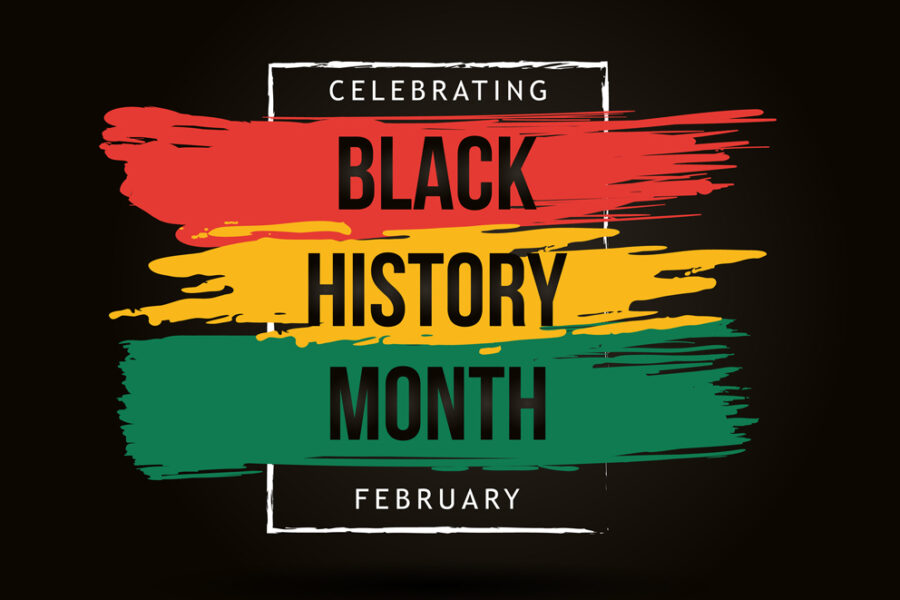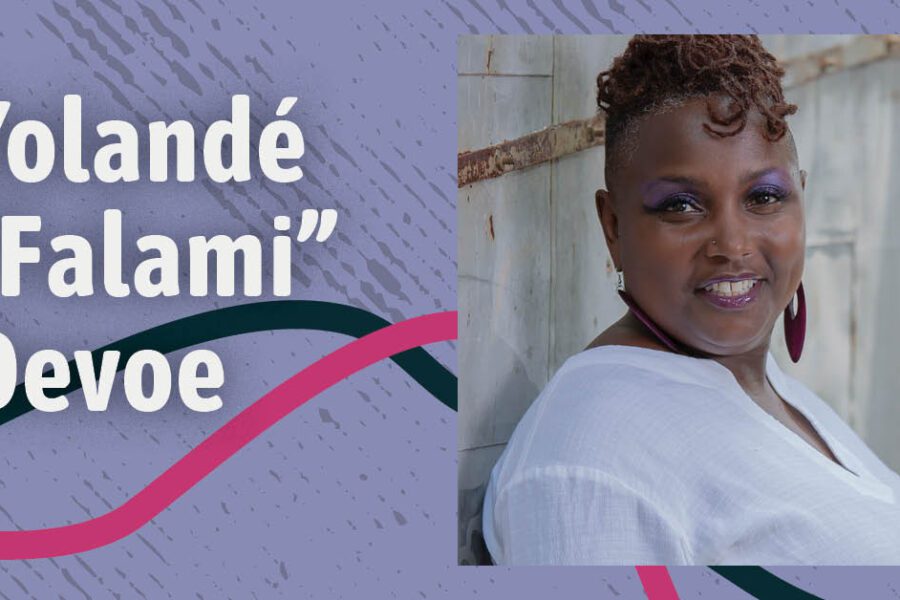If you ever talk to a student, alum, or faculty member of Antioch’s Individualized Master of Arts, there is a high likelihood that they will bring up “FDN-5003: Foundations in Individualized Study.” This course, with its alphanumeric code that sounds like something from a Sci-Fi story, is much more than just another class. As Rishab Nathan, a recent student in 5003 explains, “5003 gave me the keys to be able to unlock my own path that I journeyed through excitedly and passionately.”
5003 is the last of three foundational classes that students in the Individualized Master of Arts, who are designing a personalized liberal arts master degree, have to take before they venture into a fully customized learning experience. As part of an educational approach where students author their own learning trajectories, 5003 distinguishes itself as a specific course that equips students with the essential skills, resources, and support they need to approach the autonomy and freedom of self-design with confidence. During 5003 students learn to develop curricula that will meet their interests regardless of how broad or idiosyncratic, related or disparate these may be.
In some ways, 5003 is a germinating period that nurtures ideas so that these can eventually evolve into specializations, explain Program Coordinator Vanessa Cabrales and Program Chair, Ashley Nielsen, PhD. These ideas can run the gamut from “Contemporary Activist Art” to “Sexual Health Education” to “Intercultural Studies” to “Non-Profit Resource Development” to “Transformative Learning” to “Climate Change and the Future of Farms.” The program lists dozens of previous specializations, many of which are incredibly specific—some, almost two sentences long!
One prominent alum of the IMA is José Ramos-Horta, who specialized in “Peace Studies.” This program was perfectly tailored to his status at the time as an exiled leader of East Timor, who had been forced to flee the country after Indonesia invaded it in 1974. His 1984 thesis, titled “East Timor: A Case Study in International Law,” informed his later Nobel Peace Prize acceptance speech, and he is now President of Timor-Leste. (Read our full profile of Ramos-Horta.) More recent areas of study have culminated in theses like “Retraditionalizing Native American Video” and “What is Owed: How America has Denied Black Americans Economic Justice.”
Cabrales and Nielsen emphasize that 5003 is not only a process of acquiring new ways of being a student but also an opportunity to unlearn processes that hinder growth. As Nielsen explains, “Self-design is about giving the freedom for people to be who they are by unlocking their potential. The traditional educational system has people choose boxes and disregard the uniqueness of the individual. In our program, we get rid of those boxes so students can explore their own essence, calling, and vocation—and design a degree accordingly.”
Preparing Students for Designing Their Degree
During the seven weeks of 5003, students engage with introspective inquiries: they reflect on their optimal learning styles, realms of interests, and the specific types of support they require. Nielsen explains that one of the central concepts is “unschooling,” which she describes as “a concept challenging the traditional notion of schools dictating ‘what’ students should learn.” The consequence of this idea for the program is, she says, to “shift our focus from ‘what’ to learn to ‘how’ to learn. This marks a significant change for many students, as they now have control not only over ‘what’ they want to learn but also ‘how’ they want to learn and how they want to be assessed. This shift is an integral part of the ‘unschooling’ process.”
Nathan, the course alum who specialized in Psychoanalytic Theory, says that these course objective totally worked for him. “I learned a lot about how to craft my own course,” he says, “including syllabus and objectives. 5003 was the launching pad that sent me to the best part about the program, which is the individualized nature of it.”
And while critical reflection grounds 5003, learning the art of the syllabus is its backbone as it enables students to structure their learning experience in ways that make sense to their specializations.
Students in the program design not only what they wish to learn and focus on but also how they want to learn. Some work in small groups, some take already existing courses, and some prefer to learn on their own. As Joseph Cronin, PhD, Professor of Humanities in the IMA, explains, “They may choose not only books, articles, and resources, but can also choose how they want to interact with their instructors.” After designing their own courses, students work with instructors, mentors, and advisors in designing courses that are appropriate to their learning goals and learning styles. But this doesn’t mean a lack of rigor in the curriculum. “All courses have required research components germane to their disciplines and chosen areas of study,” explains Cronin, “and all have to be approved by their instructors and advisors.” Nonetheless, he says, “students are nevertheless the ones driving the primary activities and methodologies behind their classes.”
Co-Learning Across Institutional Lines
Nielsen thinks of the syllabus as more of a learning path than it is a document, and in 5003, students both forge a path and learn to walk it, so to speak. At the end of this course, each student, with the help of the program, finds an instructor, educator, or expert with a terminal degree who is willing to teach the student-designed syllabus. Once a match is found, the student enrolls in that course.
The diversity of experiences and partnerships is striking. Students have collaborated with Oxford academics delving into the complexities of the Ottoman Empire, worked alongside Emmy Award-winning filmmakers, and apprenticed neuroscientists at the forefront of psychedelic research. Course titles such as “Modern Socialist Thought,” “Dance Wisdom of the Body,” “Writing Nonfiction Early Childhood,” and “Spiritual Psychology” give a taste of the heterogeneity of student thought emerging through this program.
Within the realm of academia, working across university and institutional boundaries is uncommon, so it is both unique and exciting that during 5003, students’ interests become the catalyst for institutional collaboration, co-learning, and the exchange of ideas and knowledge.
Trish Hecker, an alum, integrated classes at AU Seattle to earn a Certificate in Sexuality Education. Hecker says, “5003 really helped me connect all of the dots between the Social Sciences degree, the Human Development and Education Studies concentration, and my interest in learning about sexuality education through the certificate program at Antioch University Seattle. I am a “big picture” person who needs to be allowed to self-direct what I want to learn and research, but I also need guidance and a container to make what I’ve discovered something that will make sense, be teachable, and quantifiable.”
Grounding Theory in Praxis
When one of Nielsen’s students expressed an interest in alternative parenting styles, this interest wasn’t limited to theoretical discussions and academic papers. Instead, it became the focal point for exploring practical applications. Nielsen elaborates, “In that class, we delved into instructional design elements and content production, and the student launched an online alternative parenting class as part of her coursework. Our emphasis is not just on understanding the theory but on showcasing how to apply it actively.” The student ended up publishing a book based on their research, and they have built a business around this class.
Nielsen adds the program empowers students to not only excel academically but also to contribute meaningfully beyond the classroom. As she says, “Our students have successfully published articles and books, delivered impactful talks, and integrated their coursework, including professional development workshops, directly into their workplaces.”
By weaving tangible skills into the space of education, students experience how what they are learning is transferable to what they are doing outside of the classroom. It also undermines the dominant white, Western academic paradigm of the ivory tower. “Some individuals have expressed surprise at discovering that this aspect of themselves could be integrated into an academic program,” says Nielsen. “They genuinely appreciate the fact that they aren’t required to compartmentalize their identities and can present their whole selves within the program.”
The program emphasizes making sure that education doesn’t feel separate from their communities, be those work communities, place-based communities, or cultural communities, given that these can be great sources of inspiration and knowledge.
Honoring the Emergent Process
In 5003, students are invited to think of themselves as artists working in pencil rather than in the permanence of acrylic paint. Revise and change, alter and amend. Cabrales refers to this as “honoring the emergent process,” explaining that individual growth requires space for pivoting. Some students find themselves more than halfway through their degree when they encounter an idea or perspective that completely alters their learning trajectory—and the program is flexible enough for them to make that change and land where they need to land. This change is celebrated as a healthy sign of the most important kind of learning.
Cabrales says that “honoring the process and emergent experience can be difficult for some students” because it is another instance of unschooling where students are encouraged to see their planning as provisional in order to genuinely respond to new information they encounter along the way.
Roz Weeks, a currently enrolled student, says, “A challenge for me was honing in on my focus(es) while developing the course plan for my IMA program. I had many ideas (still do!), and pulling together the many threads of learning felt difficult to prioritize. Thankfully, 5003 is alive and emergent, and there is always space for change, growth, and new levels of integration.”
Subverting Ideas Around Failure & Cultivating Resilience
While the backbone of this course is the syllabus, the musculature is building confidence and trust. Cabrales says, “A large part of this program is developing the capacity to move through ambiguity with grace and confidence. This program gives students the tools, the practice, and experiences to move through ambiguity.” Embracing ambiguity involves releasing binary notions of correct and incorrect and recognizing that growth will look and feel different for each student.
But in a world where many academic experiences are tied to rigid systems of grading, where failure and success are defined narrowly, and certainty is celebrated over ambiguity, approaching learning through a different framework can be a challenge.
Hecker says, “During the process of this 5003, I was often worried I wasn’t doing it “right” even though my instructor and mentor assured me that trusting myself and simply doing the assignments how I interpreted them is what made it “right.” This class provided me with a roadmap to get to the final destination while simultaneously encouraging me to take detours off the beaten path in order to discover more about my interests and passions.”
Nielsen and Cabrales both voice that turning belief into a vocation takes bravery, audacity, and courage. It is a process that is always ongoing. But they believe that when students are given adequate support, resources, and guidance to find their potential, education can be a transformative experience.





